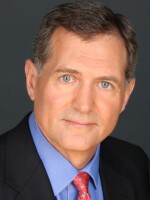ARI SHAPIRO, HOST:
The Kabul airport remains extremely busy and volatile. The number of Americans and Afghans being evacuated is ramping up, hitting new one-day highs. We now know U.S. forces are sometimes leaving the airport to assist American citizens who can't make it there on their own. For the latest, we are joined by NPR national security correspondent Greg Myre.
Hi, Greg.
GREG MYRE, BYLINE: Hi, Ari.
SHAPIRO: What more can you tell us about U.S. troops going outside the airport?
MYRE: Well, Pentagon spokesman John Kirby says U.S. forces have picked up Americans by helicopter on at least two occasions in recent days. Now, the troops have also ventured out beyond the airport perimeter on the ground.
(SOUNDBITE OF ARCHIVED RECORDING)
JOHN KIRBY: I don't want to leave you with the idea that we're somehow patrolling the streets of Kabul. But, on occasion, where there's a need and there's a capability to meet that need, our commanders on the ground are doing what they feel they need to do to help Americans reach the airport.
MYRE: Now, he didn't give us any details on these operations, but he acknowledged the military is in frequent contact with the Taliban, said the military's evacuated several thousand U.S. citizens, and an estimated several thousand more remain. And we now know that three babies have been born on evacuation flights.
SHAPIRO: Wow. Obviously, this is a risky endeavor. What more can you tell us about the security situation?
MYRE: Well, today, an unidentified sniper opened fire and killed a member of the Afghan security forces that are helping out at the airport. Biden - President Biden said yesterday, and the Pentagon said today, they're trying to expand the perimeter for multiple reasons - to guard against an attack like this, so you don't have a crush of people right up against the building. There have been people trampled to death. And some people who are eligible to get on the flight say they can't get through these crowds to get to the inside of the airport.
SHAPIRO: Now, Taliban leaders have issued a statement, saying that the U.S. and its allies have to wrap up this operation by August 31, a week from tomorrow. What if that doesn't happen?
MYRE: Well, the Taliban says this would cross a red line. And there's nothing magical about August 31, Ari. This is just a date that Biden has set, and now the Taliban are holding him to it. Biden's national security advisor, Jake Sullivan, said that the U.S. is seeking to end the airlift and to remove all the U.S. troops by the end of this self-imposed deadline at the end of the month, but they are leaving open the possibility of extending it. There were more than 10,000 evacuations yesterday by the U.S. military. That number rises to 16,000 if you include those taken by other countries in charter flights. This was by far the biggest single day numbers yet, but thousands more still want to get out, and Biden and the military will have to decide at some point if this airlift is over. The military will also need a day or two to pack up, so it's a tight deadline.
SHAPIRO: With so much attention and focus on Kabul and the airport, what can you tell us about what's happening in other parts of Afghanistan?
MYRE: There's already this feeling that it's kind of going dark in the other parts of the country as the Taliban take over. The foreign media and Afghan journalists are leaving. It's going to be much harder to get information out in the very near future. We do know there's been some fighting, and opposition groups say they've claimed some areas from the Taliban in the Panjshir Valley in the north, but that points to the prospect of continued fighting. But we don't have details.
SHAPIRO: That's NPR's national security correspondent Greg Myre.
Thank you.
MYRE: My pleasure. Transcript provided by NPR, Copyright NPR.





